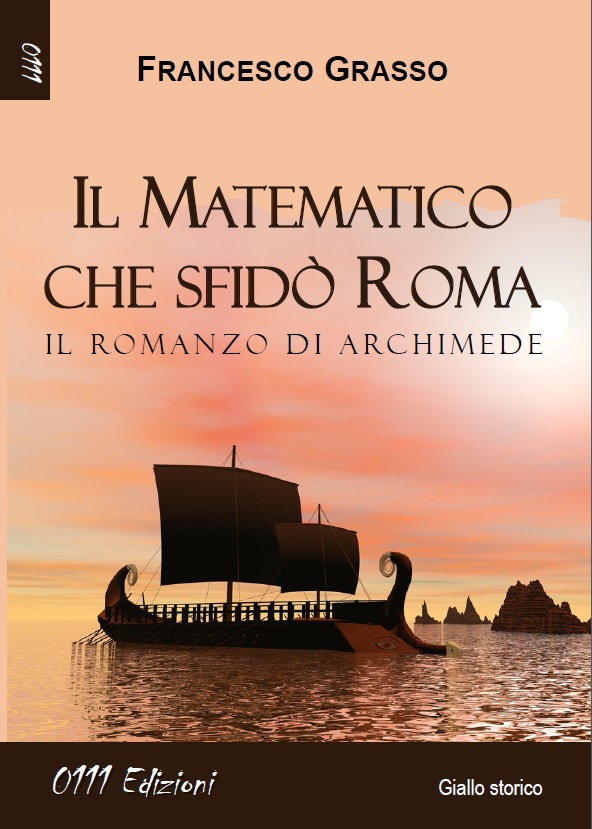
Telling the long conflict between Rome and Carthago, history books often forget the role of a third town, a city as powerful and rich as Rome itself: Syracuse, Sicily capital, Magna Graecia pearl, ruler of Mediterranean Sea, that was – unfortunately – Hannibal’s ally in the wrong moment. A choice that Rome didn’t forgive.
During the Second Punic War, Syracuse was attacked by a huge roman army led by consul Marcellus. The sicilian town, overwhelmed in men and weapons, withstood to the roman siege for two years, mainly thanks to the genius of Archimedes, one of the greatest scientist of whole history.
This novel tells Archimedes’ life and times, from his amazing mathematical discoveries to the long siege epic (ended with Archimedes’ murder) that – maybe – could had a different outcome if only misfortune (and the syracusans themselves!) hadn’t prevented Archimedes to make the most of his extraordinary inventions.
Genre: FICTION / HistoricalIn two years (published in 2014) this novel sold about 9.500 copies, mainly in the eBook edition. It was, for several weeks, first in Amazon eBook ranking. At the moment the book has 170 Amazon readers reviews.
It won many italian literary awards, such as Premio Sirmione Lugana, Premio l'Incontro, Premio Matarazzo, Premio Scriviamo Insieme, Premio Giovane Holden and others.
L’uomo brandì il bastone di frassino e si fece largo tra i rovi che, aggrovigliati in una cortina spinosa, celavano i tumuli. Il vento caldo soffiava una polvere sottile nei suoi occhi corvini, ed egli si nettava di tanto in tanto le ciglia e la fronte spaziosa con una pezzuola di lino candido.
«Cosa stai cercando, Marco?»
L’uomo mosse appena la bocca dalle labbra nervose.
«Un sepolcro.»
La donna fissò perplessa il consorte. Fece per raggiungerlo, poi si rese conto che, oltre il riparo d’ombra proiettato dalle mura di Dionisio, il calore mozzava il respiro. Esitò. Fece cenno a un servo. Questi, un giovane di colore, alto e ossuto, accorse con un parasole.
«Marco Tullio!» esclamò risentita «stai dicendo che mi hai portata a passeggiare in una necropoli?»
L’uomo additò le tombe a fosso, le lastre di pietra che affioravano dagli sterpi punteggiati da bacche violacee.
«Una necropoli in rovina» precisò. «I Siracusani non sono prodighi di attenzioni per i loro morti.»
«Mia madre diceva che dalle lapidi i defunti fissano i sopravvissuti come a chiedergliene conto…» considerò la donna.
L’uomo rise. Era basso, tarchiato, il collo e le braccia robuste, le dita callose.
«Non è dei morti che è bene provar timore, Terenzia, ma dei vivi.»
La donna scosse la testa. Era minuta, di forme morbide, una chioma ribelle a stento trattenuta da un tripudio di lacci e forcine.
«Be’, ma che trovi di notevole in questa pietraia? A parte il caldo, voglio dire…»
L’uomo allargò le braccia.
«Terenzia, i tuoi lamenti sono un’offesa ai numi. Guardati intorno; non è una visione magnifica, questa?»
| Language | Status |
|---|---|
|
English
|
Already translated.
Translated by Elizabeth Thomson
|
|
|
Author review: Elizabeth is a very precise, fast and careful professional. Working with her was a useful experience, I learned a lot! |